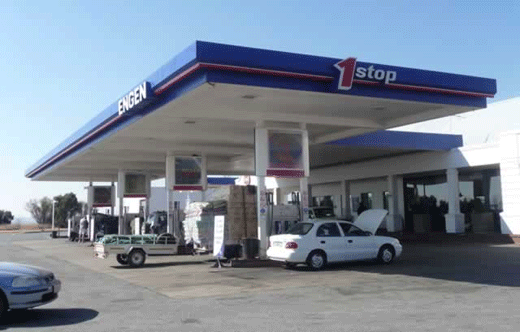
A POLICY and economic analyst has said Zimbabwe’s fuel prices remained relatively high compared to other Southern African countries despite slashing prices last week. SILAS NKALA STAFF REPORTER
Energy minister Samuel Undenge last week issued an ultimatum instructing fuel traders to reduce prices citing a significant drop in the cost of Brent crude oil.
Brent crude oil fell to $55,81 a barrel, the lowest level for oil since 2009, and Undenge decreed that petrol be pegged at $1,32 per litre and diesel $1,20 effective January 14.

However, some fuel service stations only cut petrol prices by an average of nine cents from $1,50 to $1,41 per litre.
Butler Tambo said the current phenomenon of declining world fuel prices seems to be bypassing Zimbabwe.
He said neighbouring South Africa’s petrol prices had dropped to R11,02 a litre from R12,29 in December.
“Petrol is R11,50 ($1) per litre in Swaziland and R10,83 ($0,94) per litre in coastal areas of South Africa and R11,24 in inland South Africa. Diesel has been R9,97 ($0,86) in coastal areas and R10,28 ($0,89), yet in Zimbabwe petrol has been hovering around $1,50 (R17,25). Such unprecedented differences need investigation,” Tambo said.
He said fuel in Zimbabwe was expensive because it has high fixed costs and these do not respond well and on time to price reductions.
- Chamisa under fire over US$120K donation
- Mavhunga puts DeMbare into Chibuku quarterfinals
- Pension funds bet on Cabora Bassa oilfields
- Councils defy govt fire tender directive
Keep Reading
For example, labour costs are high. The poverty datum line salaries are at $550 and most people expect to earn these salaries, yet in neighbouring countries like South Africa, people can earn as little as R1 500 ($130) and the people are still able to live from one month to the next. Rentals are high in this country,” he said.
Tambo said the price of ethanol was too high in Zimbabwe as it is produced and sold at between $0,95 and $1. He said this is very expensive considering that globally and in countries like Brazil where the product is produced in bulk, it is sold for between $0,65 and $0,75.
“Interestingly even though ethanol prices have gone down in other countries as has a barrel of crude oil, in Zimbabwe prices have not gone down. Zimbabwe has very high duties and costs/taxes set on fuel which makes it more expensive. For instance, in order to raise money to run the 2013 harmonised elections, the government put a five cents tax duty per litre on fuel and even though it’s now more than 18 months after the elections, that tax has not been scrapped,” Tambo said.
Tambo said another 5c tax per litre was also imposed in 2014 again as a revenue generating measure.
“The cost of transportation is about 5,7c, and then we add duty which is about 35c and then other levies such as carbon tax, Zinara levy, strategic stock reserves, debt redemption levies, which adds up to about 50c.”
Zimbabwe is a landlocked country with limited inbound means of transporting fuel save for the Beira Feruka pipeline and Tambo said this means whatever international price is available at the port may take a while to trickle down to the consumer.
“Interestingly though, in the past, when fuel prices went up globally, services stations have been quick to upwardly adjust their prices arguing that global prices have also gone up.”
Tambo said high fuel costs and taxes made it expensive to do business in Zimbabwe and locally-produced goods were more expensive than in other regional countries.










